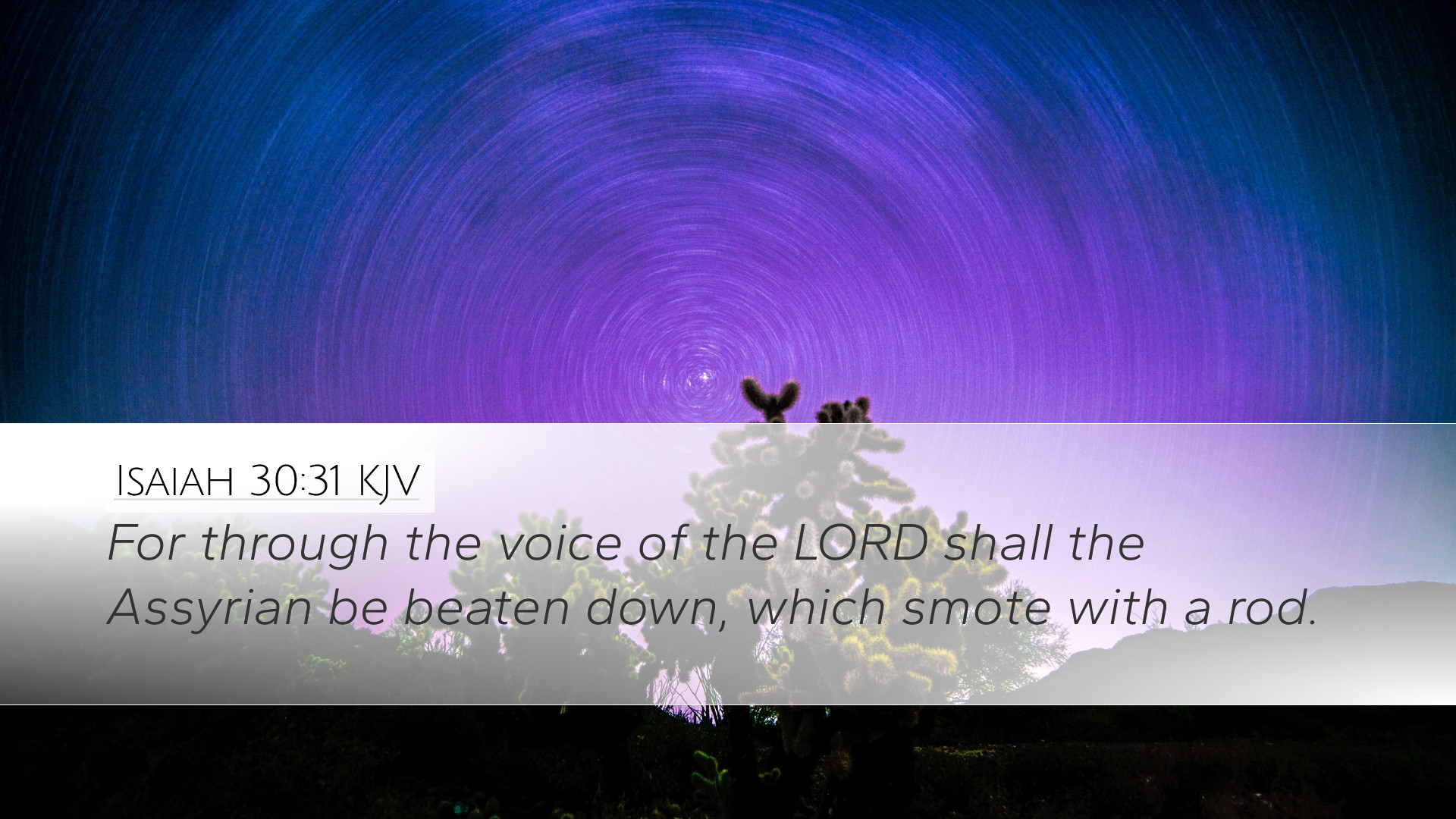Commentary on Isaiah 30:31
Isaiah 30:31 states, "The Assyrian shall fall with the sword, not of a mighty man; and the sword, not of a mean man, shall devour him: but he shall flee from the sword, and his young men shall be discomfited." This verse encapsulates the profound theological and prophetic implications regarding God's sovereignty over nations and the ultimate downfall of the proud.
Contextual Overview
This verse rests within a broader prophetic context where Isaiah speaks to the people of Judah as they face grave dangers from Assyria. The Assyrians, known for their military prowess and cruelty, represent both a physical threat and a spiritual challenge to the covenant people of God.
Theological Significance
The message emphasizes the sovereignty of God over even the mightiest of nations. God utilizes means that appear weak to accomplish His purposes and to judge those who rely upon human strength rather than divine assistance.
Divine Judgment
Matthew Henry highlights that the judgment against Assyria demonstrates God's power to bring down the proud and elevated. He notes that this is a clear representation of God's ability to lead nations to destruction without the need for a human instrument. The imagery of the sword emphasizes God's direct involvement in the fate of nations.
Human Instruments
Albert Barnes further expounds on the notion that it is not by a “mighty man” that Assyria will fall, but by God’s decree. He elaborates on the futility of relying on human leaders or military might, urging a trust in divine providence instead. This indicates that, irrespective of appearances, it is God who orchestrates victory and defeat.
Symbolism of the Sword
The sword is a significant symbol representing judgment and warfare. It serves as an instrument of divine justice. Adam Clarke remarks on the dual nature of the sword, emphasizing both judgment on Assyria and protection for Israel. The imagery suggests that while Assyria will fall, the cause of their downfall is intricately woven into God's plan to protect His people.
Historical Context
During the time of Isaiah, the Assyrian Empire was a dominant military power, exerting influence and fear over other nations, including Israel and Judah. This backdrop serves as a reminder of the prevailing geopolitical tensions of the time. Understanding this historical context sheds light on why Isaiah delivers this message of hope and impending judgment.
Practical Applications
- Faith in Divine Providence: Believers are encouraged to place their trust in God rather than human leadership or military strength.
- Hope Amidst Adversity: This verse assures that God intervenes in history and is actively involved in the affairs of nations, providing comfort to those who seek refuge in Him.
- Understanding God’s Sovereignty: The passage invites deeper reflection on God’s control over the chaos of world events, affirming that His purposes will ultimately prevail.
Conclusion
Isaiah 30:31 serves as a powerful reminder of the spiritual realities behind historical events. The insights drawn from the esteemed commentaries work together to reveal a multifaceted understanding of divine sovereignty, human frailty, and God’s redemptive purposes. As we reflect on this verse, let the assurance of God’s ultimate victory echo in our hearts, encouraging us to trust in His plans and purposes.


